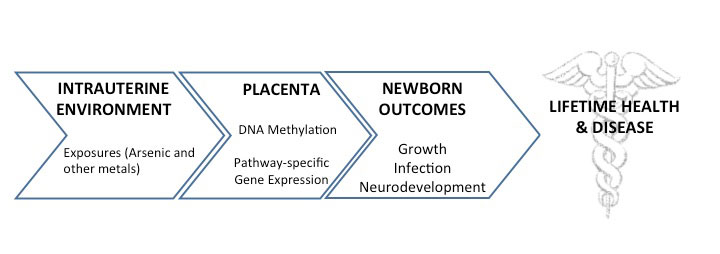Epigenetics in the Developmental Origins of Health and Disease
A number of high-profile epidemiologic studies have noted a relationship between the environment experienced in utero, infant birth weight, and the risk of common diseases including metabolic disease, cancer, and psychiatric diseases throughout life. The laboratory is examining the role that epigenetic regulation plays in mediating disease these risks. We have established a population-based birth cohort study, the Rhode Island Child Health Study, which recruits newborn infants and their mothers following delivery, in an effort to examine how the maternal environment during pregnancy contributes to various health outcomes in infants. This study is focused on examining the relationship between DNA methylation variation in the placenta and infant neurodevelopmental outcomes, which are known to be predictive of later mental health and psychopathology. Recruitment into this cohort continues, and we are aiming to expand the examinations in this population, examining alterations to imprinting in the placenta and their relationship to metals exposure and neurodevelopmental outcomes in the infants, in collaboration with Dr. Jia Chen at Mt. Sinai School of Medicine, as well as by examining the importance of miRNA expression on developmental outcomes. We are also partnering with the New Hampshire Birth Cohort Study, based in the Children's Environmental Health and Disease Prevention Center at Dartmouth, to expand examinations in this arena. This line of work, examining the molecular basis of the Developmental Origins of Health and Disease paradigm is an innovative and exciting effort of the laboratory, and one for which we have ample opportunity to contribute significantly.
